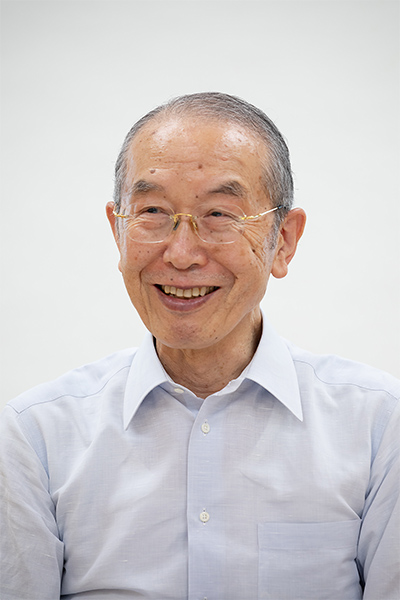Give Only Praise to Other People
August 2025

The Basis for Raising Human Beings
Among the educators I have learned from, through their writings and other sources, there are two who share a common philosophy. Their idea is that education is not lecturing; to educate is to praise. One of them, Professor Nobuzo Mori (1896–1992), even goes so far as to say that teachers should only open their mouths to give praise.
For example, if the children have not neatly lined up their shoes in the school’s shoe locker, it is the teacher’s job to tidy them up when the students are not looking. As the children become used to finding their shoes arranged neatly, they gradually start to place their shoes neatly inside the shoe locker on their own, and then the teacher praises the students. This is what Mori means by education and guidance.
Similarly, Professor Ko Hirasawa (1900–1989, former president of Kyoto University) stated that “Education is the study of how to give praise to others,” and regarding the significance of giving praise, said, “The most important thing is to bring out the best in people and then to instill in them joy, courage, and hope” (Ikiyo kyo mo yorokonde [Let’s live every day joyfully], Chichi Publishing, 1995).
I have already mentioned, several times, the importance of raising human beings, writing things like, “Let’s raise people—let’s cultivate people who have the mind of compassion” and “Let’s raise and nurture the minds of the people who are shouldering responsibility for the future.” This is because the beauty of the kindness in each and every human heart protects our beautiful planet earth and leads to the happiness of all living things that exist in harmony on it. However, these two people, who are experts in education and well-versed in religion and philosophy, say that the basis for raising young people is giving them praise.
Professor Hirasawa also said, “In the depths of your mind, you have many times more wonderful things than you yourself know. No matter what, be confident and do things magnificently.” If these are words of praise, in the educational sense, then it seems to me that raising people means encouraging awareness of buddha nature, and praising them means believing in their buddha nature.
Believing In and Revering the Buddha Nature
That said, praising others is difficult to do. In reality, we are more likely to end up scolding or nagging, aren’t we? There is a proverb that says scolding is as ineffective as “fertilizing wheat after the spring equinox, and parents’ opinions after the age of twenty.” It is only possible to raise children by scolding them up until about the age of three. After that, and especially once they become adults, no matter how much you scold or lecture them, the important points will not be conveyed unless they have already sunk into their minds.
So what should we do? Just as Isoroku Yamamoto (1884–1943, a marshal admiral of the Imperial Japanese Navy) said, “People are only inspired if you show them how, tell them how, let them try, and give them praise.” I also think that instead of scolding others, we should lead by example and praise them when they succeed, which will inspire their minds. In fact, the latter part of this quotation goes on to say, “People will not be successful unless you watch over them gratefully while they are trying and show them that you trust them to do the job.” After all, an attitude of completely believing in and revering the buddha nature of other people is important for raising human beings. Here we can also see and feel the love and trust expressed when someone tells another person “I need you.” Interactions like this make other people realize their own value and give them the joy, hope, and courage to live. Such interactions also guide their minds to the desire to become like the person who needs them.
A former minister of a Dharma center said, “By telling the members of the merits I have received by listening to them, I am praising them.” This teaches us the important lesson that in order to completely believe in and respect the buddha nature of ourselves and others, our minds must be honest and sincere. Otherwise, we cannot truly praise others.
We who hope to raise human beings through our diligent daily practices, while also further developing our own humanity, are always receiving encouragement and praise from the Buddha, too.




